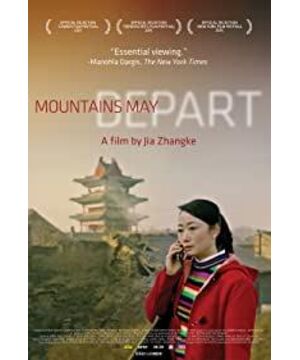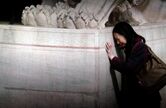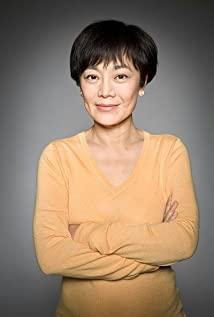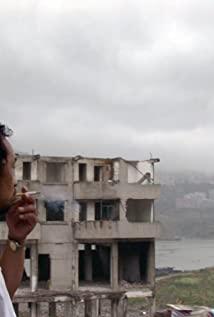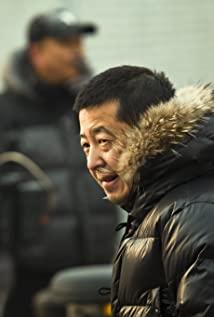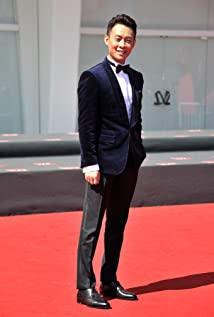This is really a Jia Zhangke-style work that is so familiar that people can no longer be familiar with it. When the opening music plays and the dance comes into view, it seems to be a reproduction of the scene of "Platform" more than ten years ago. Of course, Jia Zhangke did not simply repeat "Platform". Compared with the previous works, the world in "The Old Man of Mountains and Rivers" is more extensive, from Fenyang and Shanghai to overseas Australia, from Tao, who is still in Fenyang, to the upstart father and son Jinsheng and Dale wandering overseas. Although Jinsheng and Dale have lived overseas and have no worries about food and clothing, they still have the blood of civilians in small towns in Shanxi flowing in their bones. Jinsheng is full of food all day long, but has nothing to do, and faces depression and nothingness; while Dale has a strong sense of rootlessness despite receiving Western-style higher education, and longs to escape the university and return to civilian life to evoke the meaning of life. The love between him and his Chinese teacher has a double orientation. On the one hand, it points to his lack of maternal love, and on the other hand, the Chinese taught by the teacher points to the meaning of belonging to his motherland. This kind of intertwined and intertwined feelings for mother and mother country are connected by Ye Qianwen's old Cantonese song "Precious", which seems appropriate. When Shen Tao and Zhang Jinsheng were in love, this old song from Hong Kong, for these two young townspeople who are enthusiastic, restless, and full of longing for the future, symbolizes the flowery world outside, which is bizarre, fresh and exciting. A beautiful life; however, time flies, more than ten years later, in 2014, this song became the language and emotional bond between mother Shen Tao and son Zhang Dale; Songs have become the perfect carrier to miss the motherland and the old people. In Fenyang, Shanxi in 1999, Ye Qianwen and the Hong Kong where she lives are objects of a strange business world to Shen Tao and Zhang Jinsheng; while Australia in 2025, Ye Qianwen and Hong Kong, are to Zhang Daole and his Chinese teacher. , has been vaguely equated with their home country, China. Sadly, this increasingly unfamiliar China has also been completely objectified to them.
In this film, Jia Zhangke builds his own meaning system with the help of his consistent rich symbols, popular elements and metaphors. Zhang Jinsheng's name "Jinsheng" (born in Shanxi) has already laid a foreshadowing for him to run around Shanghai and Australia in the future, but stick to his own small town cultural genes and cannot achieve localization, and Zhang Dale's name "Daile", The English "Dollar" directly derived from the US dollar, this name symbol, and Zhang Jinsheng's red German-made car, and Shen Tao's wedding gift iPhone 15 years later to a friend, and even the French husband that friend married. It points directly to the upstarts in small towns and their naked yearning for life in the developed Western world. However, this kind of life with only material desires, but without the corresponding sense of cultural belonging and identity, is destined to be rootless and hopeless. Zhang Jinsheng's depression and Zhang Dale's confusion are all portraits of this kind of life alienated by material desires; On the other side of the ocean, Shen Tao died of loneliness, and what she consoled her with was not the empty mansion, nor the dazzling money and wealth, but the old dog who had become a family member, and the grass stage team that she loved so much before she developed. dance. What makes people lament is that Jia Dao not only criticizes materialistic life from the moral high ground, but also shows the sadness of life lacking material: Of course, Liangzi, who ran away for lost love, was terminally ill. , When there was nowhere to turn, the 30,000 yuan given by his former lover Shen Tao was undoubtedly the last ray of hope for his life. For those who live affluent lives, material desire means nothingness and alienation; while for those who are struggling on the poverty line, a sum of money can bring infinite turnaround in life. No matter whether you are rich or poor, whether you are in your home country or a foreign country, everyone is in joy, anger, sorrow and joy for the various deficiencies in life. This may be the helplessness and true meaning of life.
Symbols similar to the above are still numerous in this film. The direction of the falling plane to the shattered hope, the subconscious direction of the boy who resisted the knife to the resistance to life, the guns scattered everywhere in Jinsheng's house, the discourse on freedom he said, and the various directions of Chinese reality are all worthwhile. Playful and thoughtful. From the unrestrainedness in "Platform", to the helplessness in "The Good Man in Three Gorges", and then to the depth and hesitancy in "The Old Man of Mountains and Rivers", this change also seems to reflect Jia Jia's 20 years of acting. life path. To a certain extent, we can regard this "Old Man in Mountains and Rivers" as an autobiography of Jia Dao in a sense, from the restless young people in Fenyang, Shanxi, to after he became attached to Hong Kong (the first film "Xiao Wu" "From the cooperation with Hong Kong filmmaker Yu Liwei, who has been cooperating with Yu till now), he walked out of Fenyang, traveled in Beijing and Shanghai, and now he has become famous in major overseas film festivals. As reflected in the dance before its development, Jia Dao still seems to have a sense of homeland deep in his heart, eager for his works to conquer the overseas judges and audiences, as well as the Chinese audience who were born and raised in Sri Lanka. 's heart.
Finally, I would like to talk about the biggest flaw of this film in my eyes, that is, I did not choose other actors for Shen Tao when he was young. Zhao Tao, who is over 40 years old, seems to be able to play Shen Tao in 2014 and 2025 with ease and charm, but it is really difficult for her to play Shen Tao in 1999, when she was in her twenties. Seeing Zhao Tao, who is middle-aged, keep learning from the little girl to act like a spoiled child, whine, and laugh, the sense of disobedience is too strong. From this point of view, although Ms. Mao Jian's criticism of this in the previous film review was too harsh, the truth was not wrong. Perhaps in the handling of this role, Jia Zhangke, Zhao Tao's husband, is somewhat more selfish than the director himself should be.
In any case, on such an autumn afternoon, I would like to thank Director Jia, for allowing us to spend two hours to experience the helplessness, loss and longing of the passage of time and the changes of mountains and rivers. I also hope that Director Jia will stick to himself. At the same time, we can have the courage to break through and challenge, and come up with more rich and exciting works.
2015.11.1 Night at Zhulinzhai
View more about Mountains May Depart reviews


